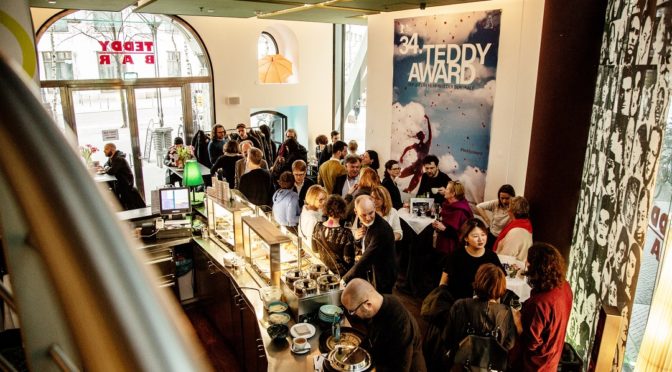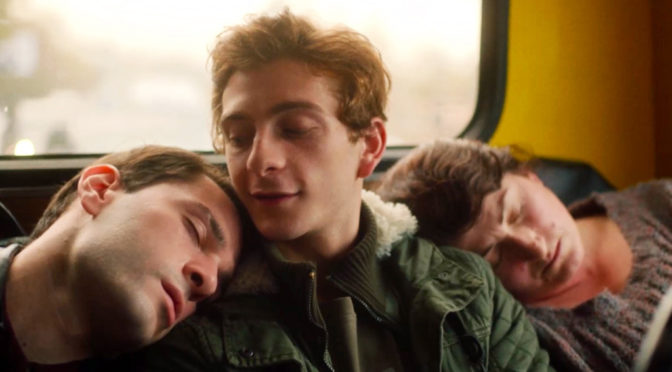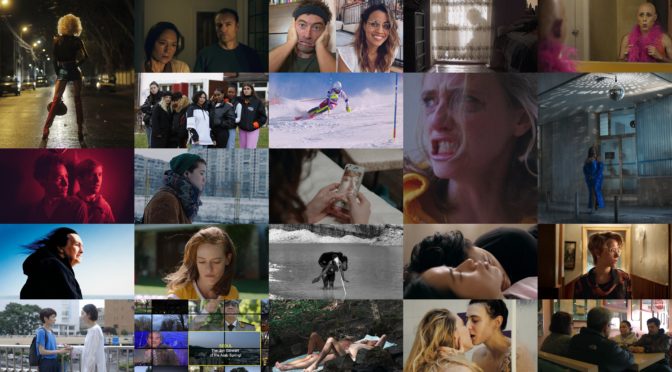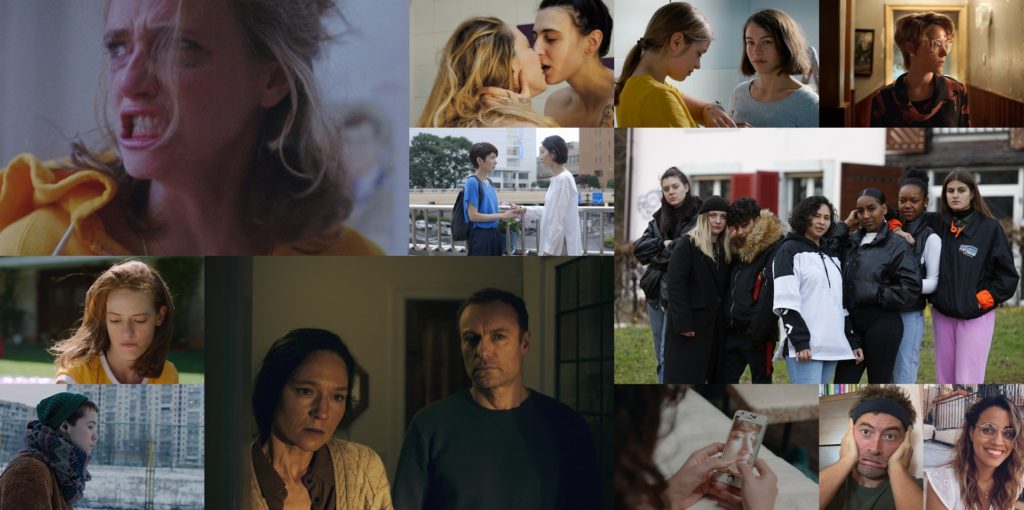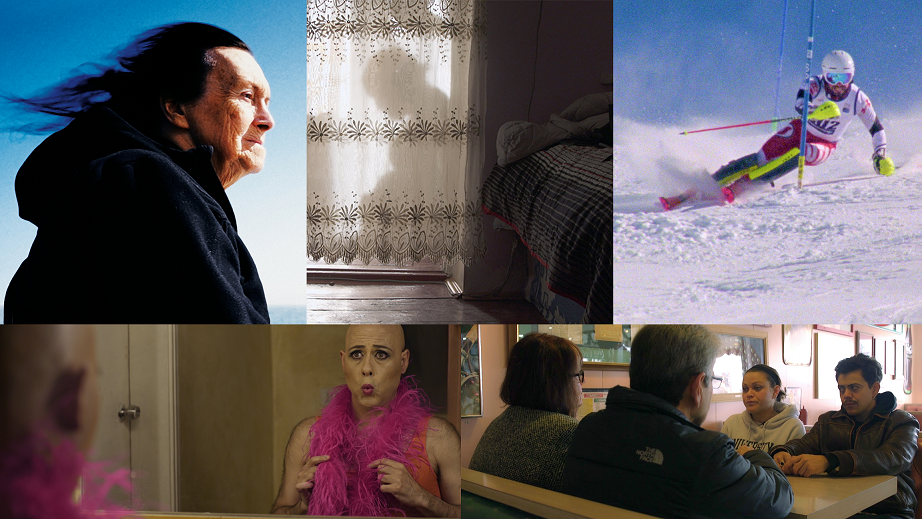Nur wenige Tage nach dem rauschenden Höhepunkt der Berlinale – der TEDDY GALA 2020 – gingen überall, nicht nur in unseren Hallen, die Lichter aus.
Wie ihr alle nur zu gut wisst, hat die Covid-19-Pandemie Kulturstätten und Kulturschaffende besonders hart getroffen und die Luft zum Atmen sprichwörtlich dünner gemacht. Weltweit wurden Kinos geschlossen, Filmfestivals mussten abgesagt oder in den digitalen Raum verlegt werden. Gleichzeitig wird das private Kino, das Filmerlebnis Zuhause, dank der zahlreichen Streamingdienste zum beliebten Abendprogramm.
Aber was ist mit den Filmen? Waren diese nicht für das Kino gemacht und nicht dafür als abendliche Nebenbeschäftigung für’s Wäschezusammenlegen herzuhalten?
Wir haben für euch bei den TEDDY Filmemacher*innen 2020 nachgefragt, was mit ihren gerade erst neu erschienenen Filmen passiert ist und, wie es ihnen unter den scheinbar nicht zu endenden Restriktionen ergeht.
Die Berlinale 2020 – eines der letzten Festivals vor dem Lockdown
Viele Filmemacher*innen berichten, dass die Berlinale zum Teil das einzige „analoge“ Festival war, an welchem sie teilnehmen konnten.
„Last year has been a very strange one but we have to say that we have been lucky in many ways. We managed to have our premiere in Berlin with you and also our national premiere at a film festival here in Stockholm before everything closed down. We are really thankful for that and still think about our time in Berlin and […] the amazing response we got from the audience <3“
Hannah Reinikainen – Director from ‚Always Amber‘
„The Berlinale was the first and last festival we had the luck to be live at! Days after that we went back home and locked ourselves down… And we are still there.
Martina Matzkin – Director of ‚El nombre de Hijo‘
I feel grateful though; I can’t think of a better place to have our only in-person live projection, being able to share with colleagues and audiences. […] It was beautiful to remember this strange year it has passed. Of course, our most beloved memories of it are from Berlin.“
„Berlinale was a great breakthrough for the film around the globe, during weird times… The movie is still traveling, this is so important for our LGBTQ+ community. It means a lot!!! […]
Diana Moro – Producer of Alice Júnior
Also the movie was presented on many special screenings involving the Transgender Community in Brazil, and for Educational propose.“
Von Live zu Online – wie verändert das die Filme?
Viele der TEDDY Filme 2020 konnten trotz Covid-19 auf zahlreichen Filmfestivals weltweit gezeigt werden, wenn auch meist online.
„We are quite happy with ‚The Twentieth Century‘, though the pandemic has been hard for the movie industry, and especially arthouse films. Festivals tried to adapt as quickly as possible by switching online, which is a good thing because it keeps the circuit open, though the collective experience of screenings is not the same.“
Marc Nauleau – Producer of ‚The Twentieth Century‘
„During this last year, we have been virtually traveling with our short film all around the world: Argentina, Germany, Spain, Sweden, Switzerland, US, UK, Albania, the Netherlands, Belgium, Russia, Estonia, Chile… And we plan on continuing the trip! It was amazing being able to share our piece with such diverse audiences. We are thrilled by all this!“
Martina Matzkin – Director of ‚El nombre de Hijo‘
„Extractions seemed to do well at festivals […]. I found even virtually attending festivals to be difficult during times the programs were geolocked to certain regions. At the same time I got a lot of positive feedback about the film, and was able to participate in panels and discussions through zoom, which was really lovely. I think that film was a uniquely suited medium for switching to online presentations. However it can quickly get overwhelming to be watching films on a little computer screen all year. „
Thirza Cuthand – Director of ‚Extractions‘
Während sich einige Filme relativ gut vom Kino auf den Computerbildschirm übertragen lassen, so sehen andere Filmemacher*innen in der virtuellen Filmpräsentation keine angemessene und dem Film gerechte Alternative. Resigniert berichtet Nicolaas Schmidt über seinen Film Inflorescence:
„Im Wissen, dass Inflorescence, wie die meisten meiner Arbeiten, für Kino produziert war und von dessen spezielle Erfahrungen lebt, tat ich mich sehr schwer mit der Entscheidung, den Film dann doch auch online zur Verfügung zu stellen. (Das fühlte sich dann schon an wie Verrat an der Arbeit bzw. der eigenen Person.)“
Nicolaas Schmidt – Director of ‚Inflorescene‘
Auch Heinz Emigholz kämpft mit der Präsentation seines Film ‚Die letzte Stadt‘. Er wartet auf die Öffnung der Kinos.
„Der Kinostart war für den Dezember 2020 geplant, dann auf Februar verschoben und ist jetzt weiter standby. Die Online-Veröffentlichung ist für uns jetzt noch keine Alternative, wir warten bis die Kinos wieder öffnen. Auch wenn einige Festivals online stattfanden, ist die Sichtbarkeit des Films durch Covid-19 deutlich geringer, Festivals sind sonst der Multiplikator für die Filme von Heinz Emigholz.“
Frieder Schlaich – Producer of ‚Die letzte Stadt‘
Wie macht man Filme während einer Pandemie?
Wie läuft das Filmemachen unter Covid-19 ab? Die Filmemacher*innen berichten über sowohl laufende wie auch kommende Projekte.
Thirza Cuthand über den Dreh und das ungewöhnliche Editing per Zoom:
„The last film I made last year was a short drama featuring special effects, stunts, and driving. And VFX. We were lucky to be able to shoot in a small window when the case numbers of COVID were very low, before the September second wave began. I was not sure how editing would go, but we made it work remotely through a lot of zoom sessions with screen sharing between the editor, myself, and the producer. […] It was a very strange way to make a film but the fact we were able to shoot it still was pretty awesome. This year the films I am working on are either still in the script stage, or are very experimental and I will be the only crew person filming things around my neighbourhood.“
Thirza Cuthand – Director of ‚Extractions‘
Heinz Emigholz arbeitet gleichzeitig an mehreren Filmen und einer Ausstellung:
„Letzte Woche haben wir mit den Dreharbeiten seines neusten Films ‚Schlachthäuser der Moderne‘ in Berlin begonnen, die wir ab April in Bolivien und Argentinien fortsetzen wollen. Das wird Pandemie-bedingt wahrscheinlich nicht klappen, wir stellen uns auf eine Verschiebung ein.
Es gibt also einen ideellen und einen wirtschaftlichen Verlust, der uns bisher aber nicht stoppen konnte, weiter Projekte zu entwickeln und zu produzieren. „
Frieder Schlaich – Producer of ‚Die letzte Stadt‘
Auch Martina Matzkin nutzt die Zeit des Lockdowns effektiv:
„As for our future plans, we had to stop the shooting of our first feature-length documentary. But we expect to start again soon. In the meantime, we have had the time to revisit the shot material and to develop new projects. We have even had the luck to be at online development labs and workshops… We have no plans to stop making films!“
Martina Matzkin – Director of ‚El nombre de Hijo‘
Wir wünschen allen Filmemacher*innen alles Gute für ihre weiteren Projekte und Filme. Haltet durch! Wir sind gespannt und freuen uns sehr darauf, was wir von Euch zu sehen bekommen.
Hier findet ihr noch weitere Videostatements der TEDDY Filmemacher*innen.
Wenn ihr noch mehr über die Situation der Filmindustrie, -produktion und der Filmemacher*innen wissen wollt, klickt euch gerne durch die folgenden Links. Es gibt soviel zu entdecken!
–> Hier geht’s zum TEDDY Talk – A look back to the future. (Live am Mittwoch, dem 03.03., 16Uhr)
–> Hier zur großen Programmübersicht der TEDDY TALKS 2021
